#film books
Link
21 notes
·
View notes
Text

I’m reading this BFI Classics book written by Andrew Osmond on the movie (one of my favorites) Spirited Away, which was released in Japan in 2002.
When I had first watched the movie as a kid, I didn’t get passed the pig scene because it horrified me so much, but when I watched it a second time I fell in love with it. And now I rewatch it pretty frequently to bring back those feelings of magic as I watch Chihiro’s journey.
❤️ BFI Classics: Spirited Away by Andrew Osmond
#godzilla reads#BFI classics#british film institute#film books#spirited away#spirited away 2002#reading#books and snow#booklr#bookworm#bookish#book blog#bibliophile
16 notes
·
View notes
Text
In Praise of Babylon

Kenneth Anger departed this realm of existence after 96 trips around the sun. His name will remain a topic in cinema history and studies circles due to his gay experimental films, including "Fireworks" and "Scorpio Rising," and his gossipy collections of movie star scandals and death, "Hollywood Babylon" and "Hollywood Babylon II."
It's been twenty-one years and multiple degrees associated with cinema since I first encountered "Hollywood Babylon," and while, like the Hitchhiker's Guide to the Galaxy, it has many omissions and contains much that is apocryphal, or at least wildly inaccurate, it remains a foundational cinema history text for me. In fact, the other day I invoked it in a Twitter conversation about non-fiction books about the Hollywood production code:
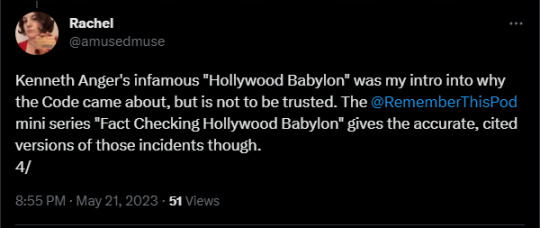
Yes, if you want a more accurate depiction of Hollywood history, you're better off with a Kevin Brownlow or David Bordwell and Kristin Thompson text. If you want to read more accurate versions of the stories, there's "Scandals of Classic Hollywood: Sex, Deviance, and Drama from the Golden Age of American Cinema" by Anne Helen Petersen, "Tinseltown: Murder, Morphine, and Madness at the Dawn of Hollywood" by William J. Mann, and various biographies of the stars discussed. Yet, I cannot convince myself to remove my copies of "Hollywood Babylon" and (as a colleague once called it) "Holly Baby Two" from my film book shelf, where they sit beside scholarly texts that cite their sources.
The educated cinema expert in me justifies keeping around the salacious tomes because of how they fit into the histories of celebrity culture and public perception of the personalities depicted. The cinephile in me doesn't need a reason beyond sentiment for the works themselves and how they fit into my evolution as a film scholar.
I came across "Hollywood Babylon" as a teenager in the paltry film book section in our local Barnes & Noble. Having grown up on E! True Hollywood Story and witnessed the tabloid scandals that defined the '90s, it appealed to my appetites for celebrity gossip, scandal and old Hollywood. Plus there were the photos. The text is artfully juxtaposed with publicity stills, poparazzi snapshots, and crime scene photos. The fact that the book presents itself as a forbidden history made the book extremely appealing; as mythology teaches us, such information is irresistible even as it has the capacity to destroy and corrupt.
I not only ate that book up, I used it as a source for a high school presentation about the history of film censorship and rating systems. In the pre-streaming, pre-ebook world of the first decade of this century, without college library access, "Hollywood Babylon" could and did function as an authoritative source for the budding cinephile.
With college, and access to scholarly film books, "Hollywood Babylon" ceased to be a referenced text on my school projects. It did, however, remain one of my favorite books to read whilst soaking in a bathtub. Much like the fairy tales I read as a child, there was a luxurious escapist comfort in these cautionary tales of cinema idols. And even there, "Scandals of Classic Hollywood" eventually elbowed "Hollywood Babylon" out of the way. (I regularly recommend Petersen's book with the description, "It's like if Hollywood Babylon was factual!")
It took Karina Longworth's 2018 You Must Remember This mini-series on "Fact Checking Hollywood Babylon" to get me to pick up "Hollywood Babylon" again. And nerd that I am, I read along in my physical copy with the passages read in each episode.
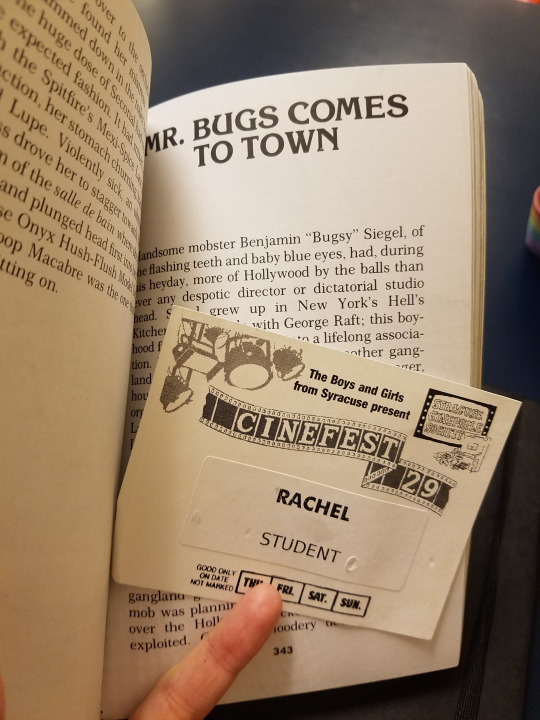

Hearing the various scandals via Petersen and Longworth for me was akin to learning about the original versions and historical context of fairy tales. Rather than destroying what was so enchanting about Anger's versions they gave me a more mature understanding of stories that already fascinated me.
For its faults, "Hollywood Babylon" is a gateway text to film scholarship. Its appeal is not academic, but social and entertaining. More importantly, once it has your attention it will make you want to know more, and question the way the tales get depicted or retold. It engages curiosity and magnifies it. It inspires rehabilitation and rebukes of the stars and scandals discussed. I don't expect Anger intended these outcomes with he documented and embellished the stories he used to hear at parties for publication, but he none the less created a foundational text of Hollywood and celebrity mythology.
Despite having a hard time getting back into blogging about cinema like I used to, when I saw that Anger had died, I felt compelled to write. I have too much gratitude for that gossip book's influence on my life to let his passing go without comment.
Thank you, Mr. Anger.
6 notes
·
View notes
Text
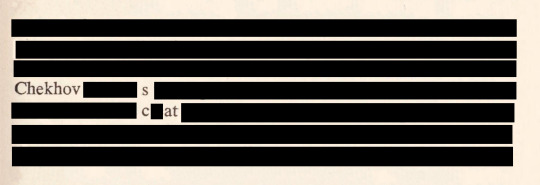
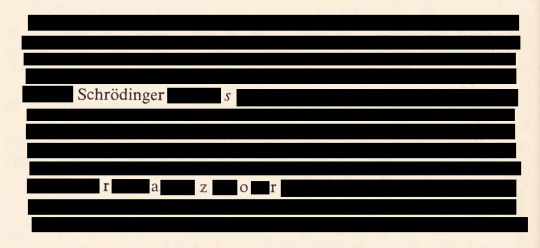
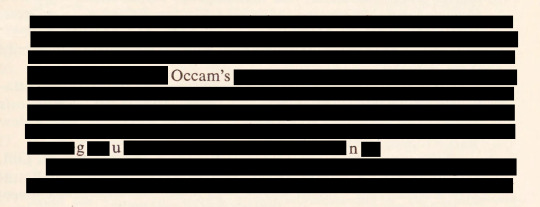
imagination (1963) - harold ordway rugg
"chekhovs cat / schrödingers razor / occams gun"
#chekhov#schrodinger#occam#the three genders#hope everyone has a good halloweekend#and a good hallowtuesday#watched the 1979 nosferatu#it was silly#feel free to recommend more german films#anyway#blackout poetry#blackout poem#author#book#poetry
58K notes
·
View notes
Text
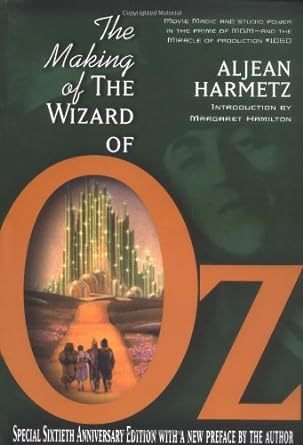
#83 of The 100 Greatest Film Books of All Time
#The Making of the Wizard of Oz: Movie Magic and Studio Power in the Prime of MGM#aljean harmetz#the wizard of oz#film books#100 greatest film books of all time
0 notes
Text
recommending things to people like uhh yeah it's really fucking weird but well. i promise it's good. can i describe it? uhh. no
18K notes
·
View notes
Text


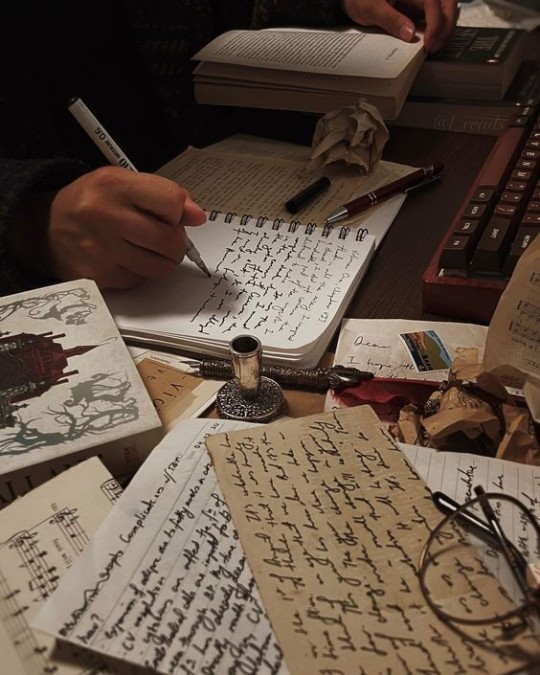
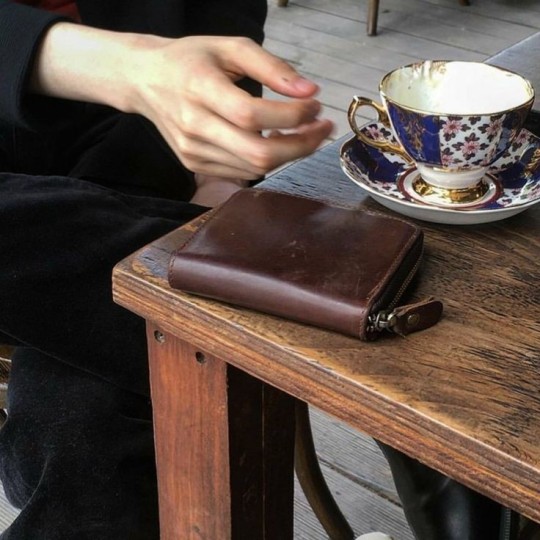
Neil said, "I was good. I was really good."
#aesthetic#dark academia#art#coffee#books#academia#college#light academia#studyblr#literature#Artist#Theatre#Love#Romance#Film#Acting#Actor#Neil Perry#dead poets society#Dead poets#John keating#Robin williams#peter weir#robert sean leonard#Ethan hawke#Todd anderson#Welton
10K notes
·
View notes
Text

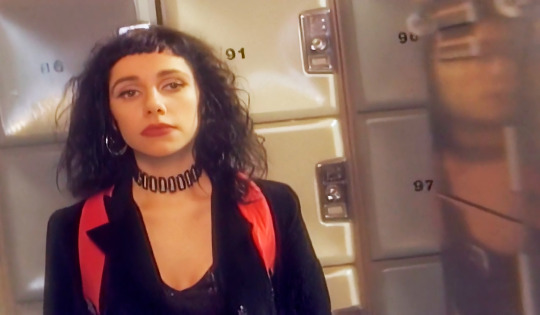


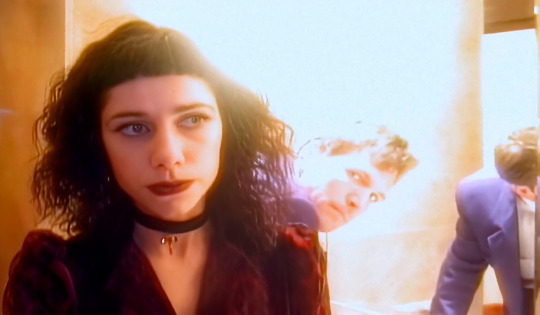
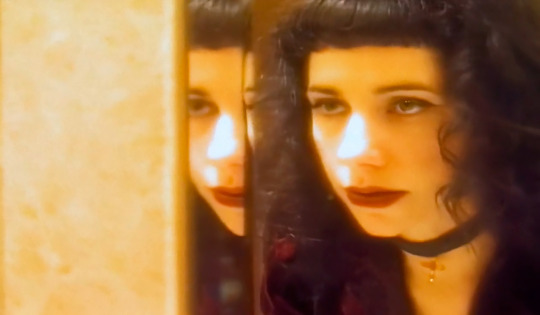
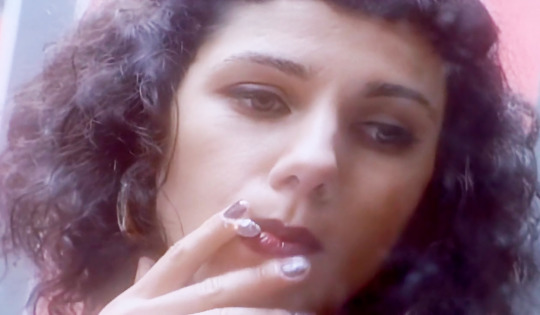

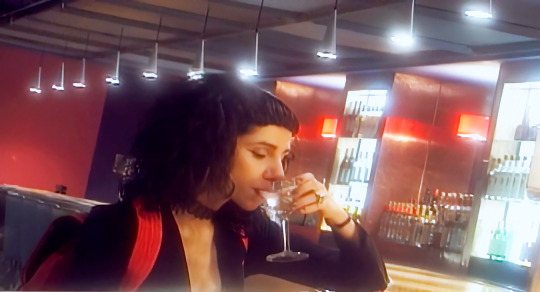

PJ Harvey in "The Book of Life" (dir. Hal Hartley - 1998).
3K notes
·
View notes
Text
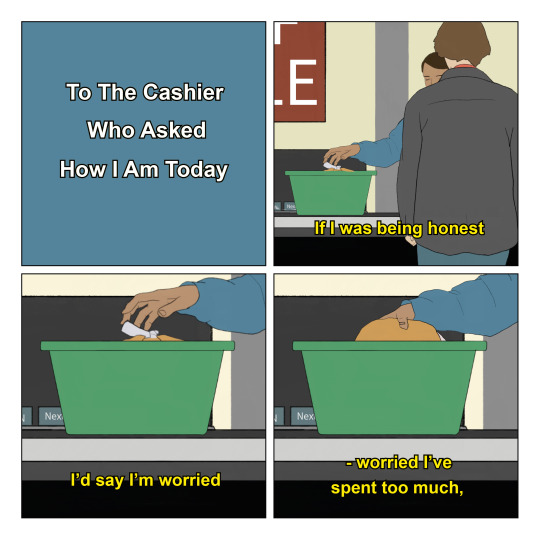

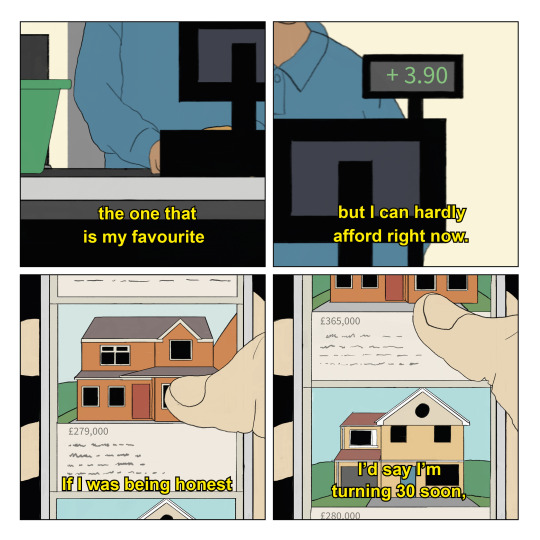
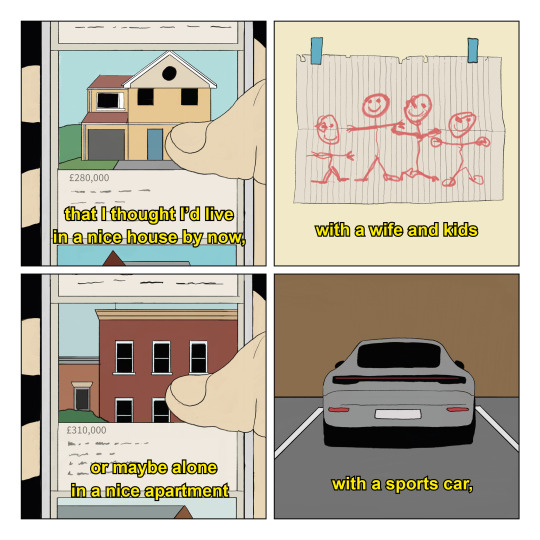
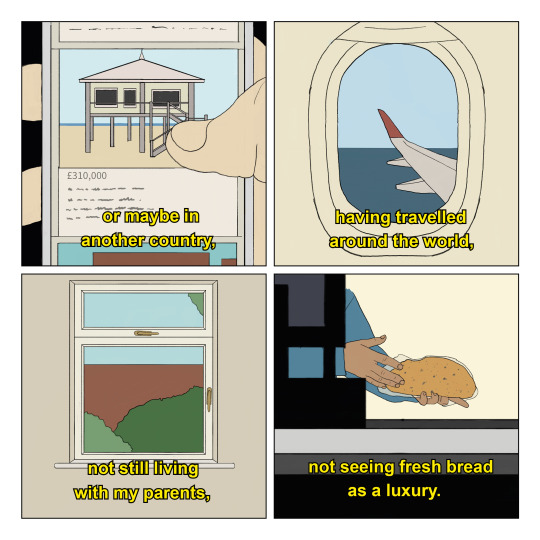
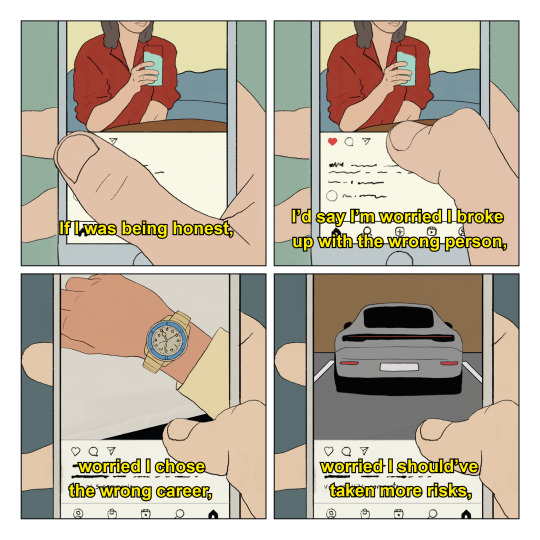
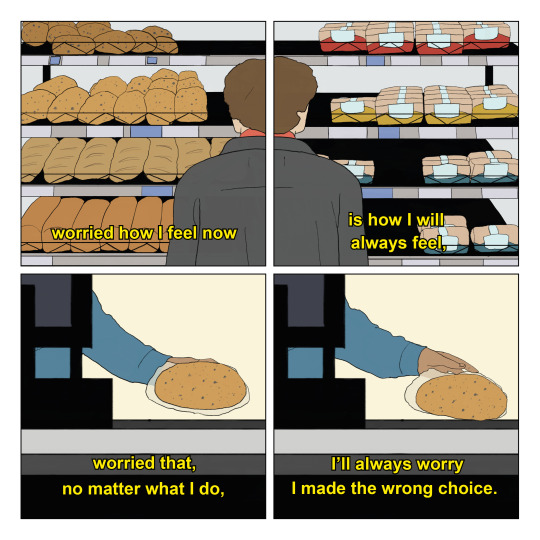
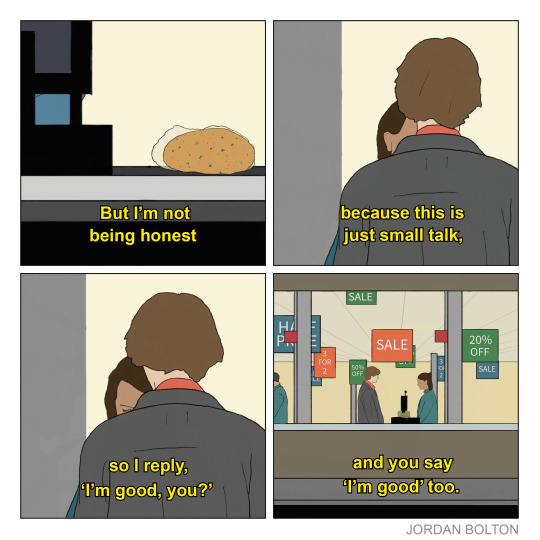
To The Cashier Who Asked How I Am Today - Jordan Bolton
My first book ‘Blue Sky Through the Window of a Moving Car’ is now available to pre-order! Get it here - https://smarturl.it/BlueSky
#jordan bolton#art#scenes from imagined films#illustration#graphic design#comic#comix#jordanbolton#comic book#poetry
2K notes
·
View notes
Text
Watching the Red White and Royal Blue movie and god it is just so refreshing to have two adult men fall in love and have the stereotypically fairy tale romantic affair like a politically charged hallmark movie
Like absolutely nothing against teen queer coming of age stories, I adore them and they’re so important but it’s just so nice to have adults falling in love, adults with plans and motivations but still figuring things out a little, real actual adults with hobbies and passions and accomplishments, getting to just be queer and in love and they are the main characters within their own lives
And they’re in a rom-com, a full on rom-com with the cheesiness and the drama and the sweet, fluffy romance where everything is resolved in the end and it’s queer. It never shies away from the queerness, they make out, they have sex, they gaze lovingly into each other’s eyes, they make silly jokes and get to adore each other
It’s so refreshing, it’s so nice to have this type of story, this story for the adult queers, a comfort film like to Mamma Mia, that’s full of heart and enjoyment and fun, with queerness at the forefront
#red white and royal blue#rwrb film#rwrb#rwrb book#rwrb on prime#rwrb 2023#prince henry rwrb#rwrb alex#firstprince
8K notes
·
View notes
Text
Ok, time for a hot take.
It really bothers me that Rosie and Sam’s relationship is reduced and made so shallow in the films, with the implication that they’ve never even talked to each other, and Sam is pining for this girl he doesn’t really know….
Like …
… this actually misses the entire point of their relationship in the book.
In the book, Sam and Rosie grew up together. His warmest memories that bring him comfort in the darkest place are the memories of playing with her in the pool when they were kids.
The point of Tolkien’s Rosie is that she’s someone familiar to Sam, the face that comes into his mind when he thinks of home. He remembers an actual moment he spent with her, a moment of fun and bonding. Then when he comes home, it turns out she could somehow sense the moment the Ring was destroyed, and knew he was coming home. They have this special, deep bond that brings Sam a sense of comfort and stability.
She’s not supposed to be some distant, unknown figure that Sam has built up in his head but has never actually talked to or gotten to know. That’s literally the antithesis of Tolkien’s Rosie Cotton.
It’s like the films swap Sam’s initial relationships with Rosie and with Frodo. In the movies, he starts off more familiar and friendly with Frodo; they apparently go to the pub together frequently like typical buddies do, whereas Rosie is in another world, dancing and making drinks behind the bar, and Sam is just too unsure of himself to even make small talk with her.
But Tolkien’s portrait is the exact opposite. Rosie is the one who Sam spends a lot of time with and has known for a long while. Frodo is the one who Sam is distant from and doesn’t really have the nerve to make chit-chat with, because he is Frodo’s servant and thus he thinks it’s not his place to be too friendly with “his betters,” as his dad says. (And then the journey takes the two of them out of that restrictive class system and frees them to bond and get to know each other as people.)
Then when they come home, there’s an actual sense of coming home, because Rosie embodies everything that is familiar and safe for Sam. Not everything that is unknown and scary.
#lotr#jrr tolkien#lotr books#lord of the rings#lotr movies#lotr book vs film#sam x rosie#samwise gamgee#rosie cotton#frodo baggins
2K notes
·
View notes
Text
i hate you romantically involved characters who talk to each other like they’re in a couples counseling session, i hate you watering down of the word toxic, i hate you plot twists where the male love interest is actually a villain because see, silly girl? in the REAL world guys like that are DANGEROUS, i hate you relationship therapist breaks down movie couple’s relationship videos, i hate you “romeo and juliet were just stupid horny teenagers” “belle had stockholm syndrome” “wuthering heights isn’t romantic” hot takes, i hate you sanitization of romance in fiction
14K notes
·
View notes
Text

animal farm (1945) - george orwell
"womp womp"
#if saying womp womp is a disease#i am uncurable#i have to one up all the other people in my film classes lol#i am in a pretentious off every day#am very into german expressionism rn#and always#anyway#blackout poetry#blackout poem#author#book#poetry
9K notes
·
View notes
Text
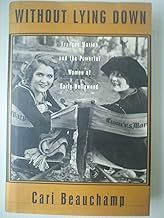
#61 of The 100 Greatest Film Books of All Time
#Without Lying Down: Frances Marion and the Powerful Women of Early Hollywood#Cari Beauchamp#the 100 greatest film books of all time#film books#scott feinberg
0 notes
Text
5 Tips for Creating Intimidating Antagonists
Antagonists, whether people, the world, an object, or something else are integral to giving your story stakes and enough conflict to challenge your character enough to change them. Today I’m just going to focus on people antagonists because they are the easiest to do this with!
1. Your antagonist is still a character
While sure, antagonists exist in the story to combat your MC and make their lives and quest difficult, they are still characters in the story—they are still people in the world.
Antagonists lacking in this humanity may land flat or uninteresting, and it’s more likely they’ll fall into trope territory.
You should treat your antagonists like any other character. They should have goals, objectives, flaws, backstories, etc. (check out my character creation stuff here). They may even go through their own character arc, even if that doesn’t necessarily lead them to the ‘good’ side.
Really effective antagonists are human enough for us to see ourselves in them—in another universe, we could even be them.
2. They’re… antagonistic
There’s two types of antagonist. Type A and Type B. Type A antagonist’s have a goal that is opposite the MC’s. Type B’s goal is the same as the MC’s, but their objectives contradict each other.
For example, in Type A, your MC wants to win the contest, your antagonist wants them to lose.
In Type B, your MC wants to win the contest, and your antagonist wants to win the same contest. They can’t both win, so the way they get to their goal goes against each other.
A is where you get your Draco Malfoy’s, other school bullies, or President Snow’s (they don’t necessarily want what the MC does, they just don’t want them to have it.)
B is where you get the other Hunger Games contestants, or any adventure movie where the villain wants the secret treasure that the MCs are also hunting down. They want the same thing.
3. They have well-formed motivations
While we as the writers know that your antagonist was conceptualized to get in the way of the MC, they don’t know that. To them, they exist separate from the MC, and have their own reasons for doing what they do.
In Type A antagonists, whatever the MC wants would be bad for them in some way—so they can’t let them have it. For example, your MC wants to destroy Amazon, Jeff Bezos wants them not to do that. Why not? He wants to continue making money. To him, the MC getting what they want would take away something he has.
Other motivations could be: MC’s success would take away an opportunity they want, lose them power or fame or money or love, it could reveal something harmful about them—harming their reputation. It could even, in some cases, cause them physical harm.
This doesn’t necessarily have to be true, but the antagonist has to believe it’s true. Such as, if MC wins the competition, my wife will leave me for them. Maybe she absolutely wouldn’t, but your antagonist isn’t going to take that chance anyway.
In Type B antagonists, they want the same thing as the MC. In this case, their motivations could be literally anything. They want to win the competition to have enough money to save their family farm, or to prove to their family that they can succeed at something, or to bring them fame so that they won’t die a ‘nobody’.
They have a motivation separate from the MC, but that pesky protagonist keeps getting in their way.
4. They have power over the MC
Antagonists that aren’t able to combat the MC very well aren’t very interesting. Their job is to set the MC back, so they should be able to impact their journey and lives. They need some sort of advantage, privilege, or power over the MC.
President Snow has armies and the force of his system to squash Katniss. She’s able to survive through political tension and her own army of rebels, but he looms an incredibly formidable foe.
Your antagonist may be more wealthy, powerful, influential, intelligent, or skilled. They may have more people on their side. They are superior in some way to the protagonist.
5. And sometimes they win
Leading from the last point, your antagonists need wins. They need to get their way sometimes, which means your protagonist has to lose. You can do a bit of a trade off that allows your protagonist to lose enough to make a formidable foe out of their antagonist, but still allows them some progress using Fortunately, Unfortunately.
It goes like… Fortunately, MC gets accepted into the competition. Unfortunately, the antagonist convinces the rest of the competitors to hate them. Fortunately, they make one friend. Unfortunately, their first entry into the competition gets sabotaged. Fortunately, they make it through the first round anyway, etc. etc.
An antagonist that doesn’t do any antagonizing isn’t very interesting, and is completely pointless in their purpose to heighten stakes and create conflict for your protagonist to overcome. We’ll probably be talking about antagonists more soon!
Anything I missed?
#writing#creative writing#writers#screenwriting#writing inspiration#writing community#filmmaking#books#film#writing advice#antagonists#villains#writing antagonists#5 tips for creating intimidating antagonists
2K notes
·
View notes
Text


recently i reread a bunch of my favorite sherlock holmes stories (norw my beloved) and felt compelled to create my own diagram for 221B
#sherlock holmes#there are so many great blueprints and maps out there and i thought it would be fun to toss my own hat into the ring#trying to be accurate to what is mentioned in the books#while still allowing for some fun artistic embellishments#was a nice challenge!#i ended up doing lestrades office too but of course you never do see that in canon so it was much more vibes~ based#i am going to color this and spruce it up some but we needed break here before diving back in#since i think the timelapse of this drawing is longer than some feature films 💀💀💀#anyway definitely open these images in a new tab and zoom in if you can bc these are really big
2K notes
·
View notes